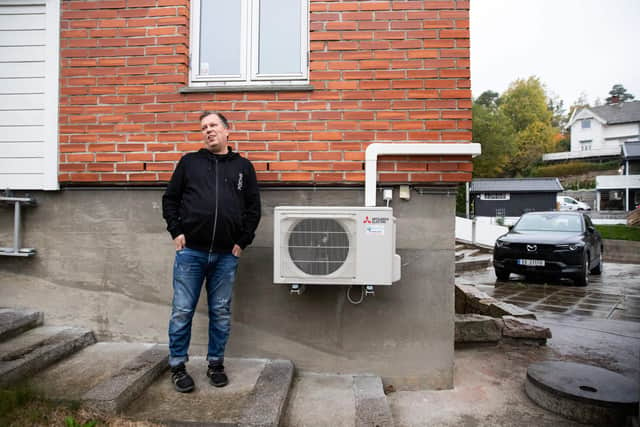Heat pumps are new battleground for those opposed to climate change action – Dr Richard Dixon
Transforming the heating of our homes and other buildings is essential to reduce climate emissions and protect people from the volatile costs of fossil fuels. But anti-climate forces and vested interests are using tactics straight out of the tobacco industry playbook to try to discredit heat pumps.
Last week, Scottish Greens minister Patrick Harvie revealed the government’s latest proposals for transforming the way buildings are powered. Heating and hot water are responsible for around a quarter of all of our climate change emissions. Alongside district-wide networks of heating pipes and electrical heating, heat pumps are a huge part of the strategy to slash these emissions.
Advertisement
Hide AdAdvertisement
Hide AdThe UK is lagging far behind other countries in installing heat pumps. The leader is Norway with nearly 30,000 heat pumps for every 100,000 people. Other leaders include Finland, Sweden, Estonia and Denmark, all cold, northern countries like Scotland. The European average is 4,000 heat pumps per 100,000 people, yet for the UK this figure is only around 560.
The UK Government recently increased the grant available to install a heat pump to £7,500, generating an immediate 60 per cent increase in the number of applications. They are also due to oblige boilermakers to sell heat pumps equivalent to four per cent of their traditional boiler sales from next year, with the target to increase over the years.
Here in Scotland, only around 5,000 buildings a year are being converted to zero-carbon heating systems and the proposals for a Heat in Buildings Bill include legal minimum energy standards for homes, a phased conversion of all heating systems, and a final ban on fossil-fuelled heating by 2045. Together, this is a strong set of measures that would reduce carbon, create jobs in insulation and heating system conversion, and reduce household bills.
But opponents have been quick to attack the new announcements. Their tactics range from arguing that heat pumps don’t work in Scotland to personal attacks on Patrick Harvie. This includes serial anti-environment whinger Fergus Ewing spouting anti-heat pump lines that sound like major housebuilders’ rhetoric during First Minister’s Questions last week.
This follows several years of press articles attacking heat pumps, driven by the trade association for gas boiler makers in a campaign with the specific aim of changing UK energy policy. They promote hydrogen as an alternative fuel, even though this makes no environmental or financial sense. A UK energy minister recently admitted hydrogen will have little or no role in home heating despite backing a trial in Fife and another potential project in Yorkshire. In Germany, the far-right has even weaponised heat pumps in their anti-climate rhetoric.


These are the same kind of arguments deployed against renewables. In the early days of wind power, we were told wind turbines could not generate any meaningful amount of electricity and that we’d always need coal-fired power stations running continuously to back them up. Yet last year, 76 per cent of Scotland’s electricity came from wind with another 13 per cent coming from hydropower and, of course, there are no coal-fired power stations left.
Despite their big positive impact across Europe, heat pumps are becoming the new battleground for anti-climate policy forces, so all credit to the Scottish Government for making bold plans.
Dr Richard Dixon is an environmental campaigner and consultant
Comments
Want to join the conversation? Please or to comment on this article.